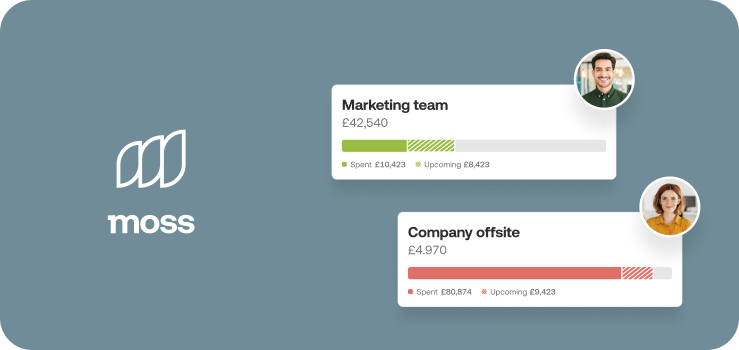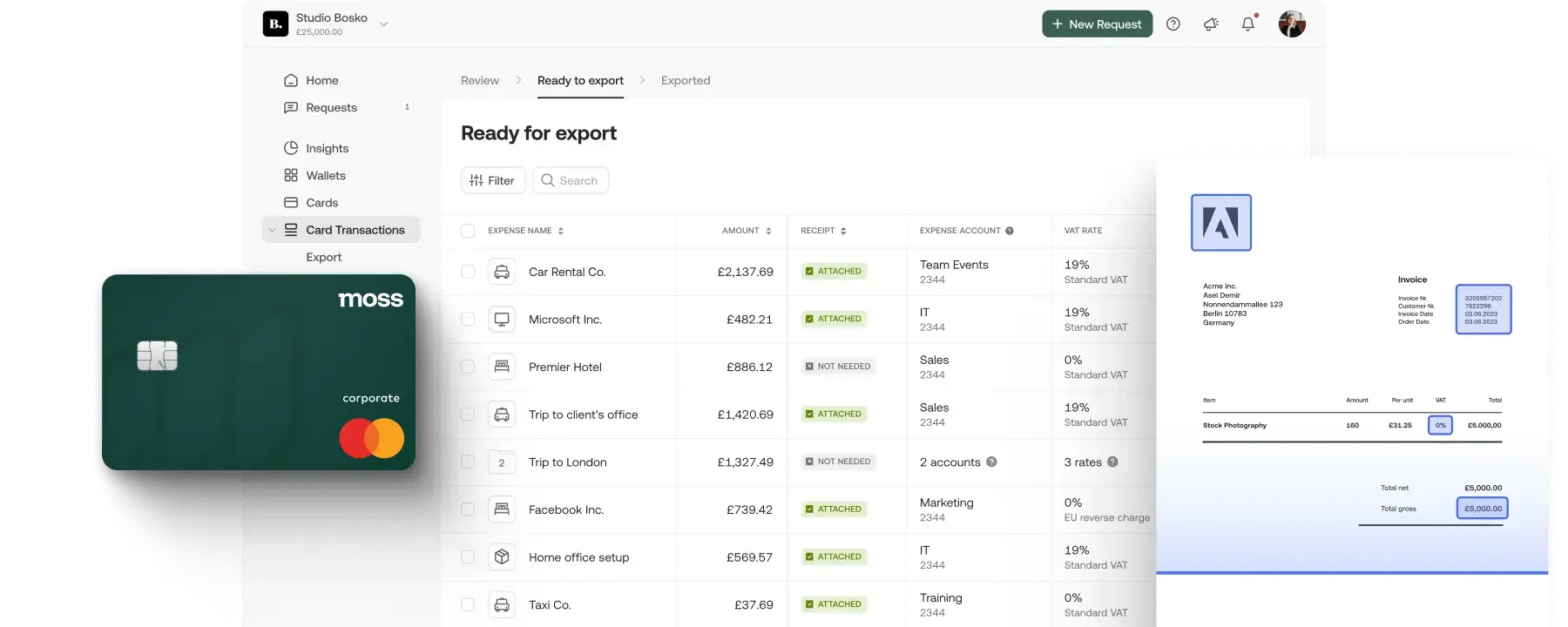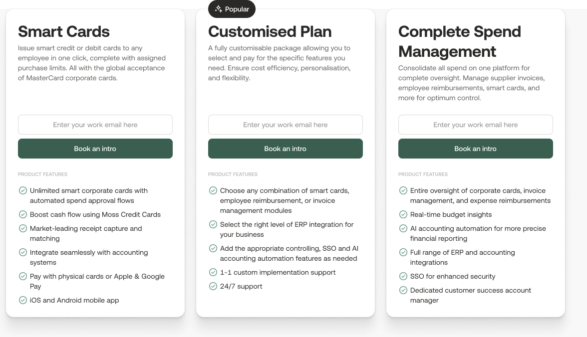Before the advent of the internet, businesses needed a physical storefront to attract customers and sell their products. Having a physical storefront is, of course, still essential for many businesses. But having a website is arguably much more important.
Lots of businesses don’t operate physical shops at all anymore, relying on ecommerce and online customers only. In fact, some of the most profitable businesses sell exclusively online. Just like having a physical store, running and maintaining a website is a significant business expense. You may not have to pay cashiers or heating costs, but there are all sorts of different costs and expenses associated with having a website for your business.
In this article we’ll run through common website costs that you’ll encounter when establishing your business online. We’ll also cover some ways you can keep your business costs at bay while maintaining a website that fits your brand requirements.
Why does it cost money to have a website?
The amount of money you’ll need to pay to build, operate and maintain a website for your business depends on a few different factors, including:
- Whether you want to sell your products or services online
Many businesses choose to have a website simply to manage their online presence, and gain brand recognition via search traffic. But, if you want to sell online, there are additional costs you need to bear in mind.
- The functions and features you want to include
Basic websites or websites built using website builders usually come with simple ‘out of the box’ features that don’t require additional investment. But, for more advanced features and functionality, you’ll usually have to pay for additional software or resources. This can significantly increase the amount of money that you’ll need to pay to operate your website, and is definitely something to consider if you’re trying to stick to a limited budget.
- The amount of traffic you expect to receive
The number of people that visit your website also has implications for setup and maintenance costs. More traffic requires more resources to keep your website running, and may make investing in a dedicated server or other features worthwhile.
These specifics of each of these points are usually related to the size of your business and the scale of your online presence.
Should I opt for in-house, agency, or freelance?

Another important thing to bear in mind is how you choose to build, maintain, and operate your business’s website. The three options are developing in-house with your own team, using an agency, or outsourcing to freelancers. Naturally, each of these options comes with its own advantages and disadvantages.
In-house
Developing a website in-house means using current employees, or hiring employees as needed to cover necessary workload and responsibilities. This may be hiring a developer to build the website themselves, or a website manager to stay on top of website maintenance and content. It’s common for businesses to choose some mix of in-house and outsourced teams to maximise efficiency and cost.
Using an in-house team has a number of advantages, including:
- More control over your project
Getting your own employees to handle your website gives you much better insight into the progress of your project, and much more direct influence over decision making and project scope.
This can be highly beneficial if you or your team has prior experience. But many small businesses will be unfamiliar with pitfalls or potential obstacles that they may face when building their own website.
- More direct, efficient communication
Working with an in-house team also facilitates much clearer, more efficient communication because team members will be on hand if issues arise or there’s a change to the project. Using an outsourced team can make clear, efficient communication more difficult, and lengthen project timelines as a result.
- Familiarity with your business and products
In-house teams are also much more familiar with your business, product, brand, and tech setup. They’ll have a natural advantage over outsourced teams when it comes to building a website that fits your company, and understanding all the different intricacies of your brand that may have an impact on website-related decisions.
Agency or freelancers
Outsourcing your website development and maintenance to an agency or freelancers can be a viable alternative to using an in-house team. This is especially true for small to medium-sized businesses or those lacking in-house expertise. Benefits of outsourcing include:
- Access to a wide range of expertise: Agencies and freelancers often have a broad skill set and experience in various aspects of web development and design. This usually means that they can bring innovative ideas and more advanced tools to your project.
- Flexibility and scalability: Hiring external help also provides flexibility. It’s easier to scale up or down based on your project requirements without the long-term commitment of employing full-time staff.
- Costs: While outsourcing can be cost-effective for one-time projects, it can become costly if you require ongoing maintenance or frequent updates.
However, there are potential drawbacks:
- Less control: Outsourcing may result in less control over a project, which can lead to misunderstandings or results that may not align perfectly with your vision.
- Communication barriers: Working with external teams may present communication challenges, especially if they are in different time zones or have different working cultures.
- Consistency issues: Ensuring consistency in your website’s look, feel, and functionality can be challenging if you’re working with multiple different freelancers or agencies. This can become particularly relevant over time, as new freelancers or agencies may have no knowledge of the technical aspects of prior projects at all.
What are the most common website costs?

As we’ve already explained, what you end up paying for your website can vary significantly depending on a few different factors. However, you should consider the following costs as obligatory.
Domain registration
Buying a domain is the first essential step for building a website as it determines your URL. Buying a new domain is cheap, anywhere between $0.95 and $12 according to WebFX. However, finding a unique domain name that fits your brand or business name may be a little harder.
Popular domain names can fetch many millions of dollars from the right buyer. If your target domain has already been taken, you’ll need to find a creative workaround if you want to keep costs down. It’s also important to remember that when you buy a domain name, you only get temporary ownership. Depending on the length of your contract, you’ll have to renew again to keep your URL. In this sense, domain registration is an ongoing cost.
Hosting
Hosting, i.e. finding server space for your website, is also essential. There are a few different ways to do this:
1. Shared hosting
Shared hosting services host multiple different websites on the same server. This approach helps reduce costs significantly, making it a good option for businesses with lower traffic and simpler websites. It’s also a good option for site security and maintenance costs as the hosting provider usually handles this as part of your subscription fee. However, shared hosting does come with some disadvantages, including susceptibility to slow speeds and crashes, and less direct control over server settings (i.e. root access).
2. Dedicated hosting
Dedicated hosting means paying for your own individual server for your website without having to share resources with others. This is ideal for businesses with high traffic or those that require a lot of server resources. While more expensive than shared hosting, dedicated hosting provides better performance, security, and flexibility. Prices can range significantly based on the level of resources and support required.
3. Virtual hosting
Virtual Private Server (VPS) hosting splits a single server into multiple virtual servers. Each virtual server acts as a dedicated server but shares the physical server’s resources. VPS hosting is a middle ground between shared and dedicated hosting, offering more resources and customization than shared hosting, but at a lower cost than dedicated hosting. It’s suitable for businesses that have outgrown shared hosting but aren’t ready for a dedicated server.
4. Hosting with CMS/software
Many businesses opt for hosting solutions that come with a Content Management System (CMS) like WordPress or Drupal. These platforms make it easier to build and manage your website without needing extensive technical knowledge. The cost can vary depending on the hosting provider and the CMS you choose. Some CMS platforms are free, but hosting services and additional features might come with a fee.
Software
Depending on the complexity of your website, you might need additional software for things like email marketing, customer relationship management, ecommerce capabilities, or analytics. These software solutions can range from free to several hundred dollars per month.
SSL certificate
An SSL (Secure Socket Layer) certificate is crucial for website security, especially if you’re handling sensitive customer data or conducting transactions. It encrypts data transferred between your website and its visitors. SSL certificates can be free (e.g., Let’s Encrypt or Cloudflare) or cost up to a few hundred dollars per year, depending on the level of security required. You’ll know if a website is protected with SSL when you see a padlock next to the URL in your browser.
Website design
The cost of designing a website can also vary widely. If you use an in-house team or a DIY website builder, you might only pay for the time and resources used. However, professional website design services, whether from an agency or a freelancer, can range from a few hundred to several thousand dollars, depending on the complexity and custom features of your website.
Using preset website design features is probably sufficient for small businesses, or businesses that are testing their first website, but larger companies will need to invest more in a unique design that fits their brand.
Ongoing website maintenance and update costs

Apart from the initial setup, websites require ongoing maintenance and updates. These costs can include:
- Software updates — Regular software updates are necessary for security and functionality. If you’re using a CMS, there might be costs associated with updating plugins or themes.
- Content updates — Updating your website with fresh content is crucial for engaging visitors and improving SEO. Whether you handle this in-house or outsource, it will be an ongoing cost.
- Technical support — Technical issues can arise at any time. Having support, either in-house or through an external provider, is essential to ensure your website runs smoothly.
- Marketing and SEO — To drive traffic to your website, you’ll likely have a digital marketing budget. This can include costs for tools, advertising, SEO, and hiring specialists.
Ways to save on website costs
There are several strategies to save on website costs without compromising on quality:
- Choose the right hosting option — Select a hosting plan that suits your current needs but allows for growth. Starting with shared or VPS hosting can be more cost-effective than jumping straight to dedicated hosting.
- Use open-source software — Open-source CMS platforms like WordPress offer flexibility and a range of free plugins and themes that make them a popular choice for small and large businesses alike.
- Prioritize essential features — Focus on must-have features and functionalities initially. You can always add more complex features as your business grow
- DIY where possible — If you have the skills, consider handling some aspects of website building and maintenance yourself to save on labor costs.
- Compare providers — Shop around and compare prices from different service providers for hosting, domain registration, and design services.
In conclusion, understanding and effectively managing website costs is crucial for any business moving online. By being aware of the necessary expenses and exploring ways to optimize them, you can ensure that your website is both functional and cost-effective. Remember, a website is an investment in your business’s future, so plan and spend wisely for the best return on investment.
Paying for expenses with Moss

At Moss we offer a range of smart spend management tools that can help businesses control their spending, saving money and time in the process. Our smart business credit cards allow you to delegate spending power to individual departments and employees, without losing control over where and when your money goes.
Each moss credit card or debit card can be set with custom budget controls to limit the amount of potential spending. If your employees do ever have to use their own cards or cash to pay for work expenses, Moss’ reimbursements module allows them to upload receipts direct from their smartphone. Managers can then approve the expense and complete the reimbursement with minimal effort.
FAQs
Costs for building a website can vary significantly depending on a number of different factors. The main things to consider are:
– Whether you want to build in-house or using outsourced teams
– The features you want to include in your websitel
– The amount of website traffic you expect to attract
An SSL (Secure Socket Layer) certificate is a digital certificate that verifies whether traffic travelling between a client and a website’s server is encrypted.
There are different advantages and disadvantages to building a website in-house or using external help. Where in-house teams are typically much more familiar with your product and company, they are more expensive in the long run. On the other hand, external teams may be cheaper, but you’ll have less direct control over project outcomes.
It is possible to run a website on a budget, provided you pick the right setup and options for project management. However, you’ll need to invest more if you want your website to have more advanced features and be able to handle more traffic.








